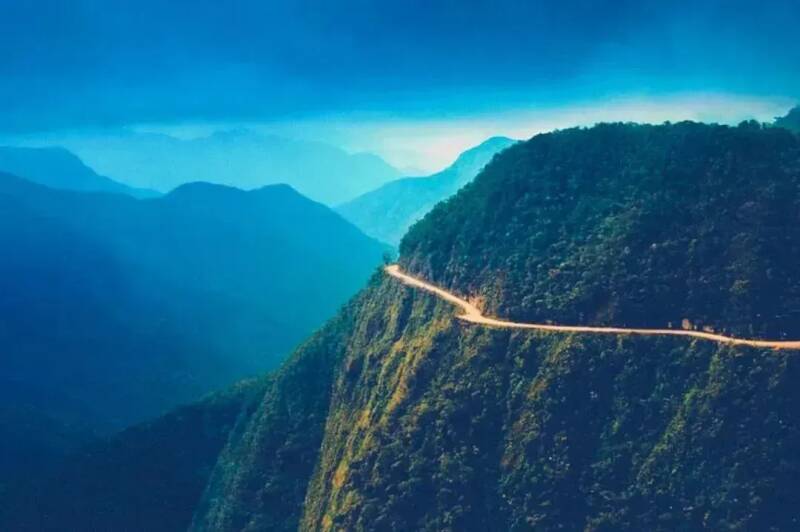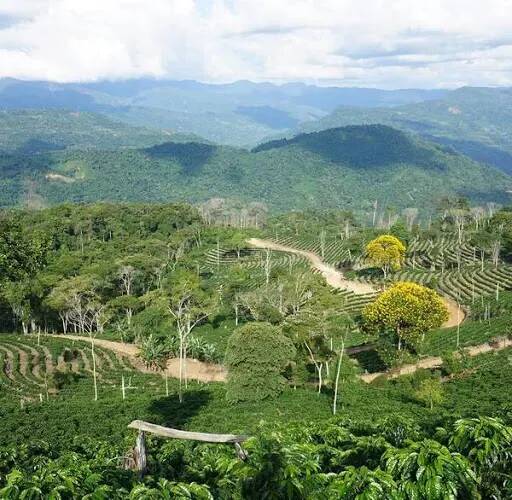Introduction to Bolivian coffee producing areas in South America
South America is rich in natural resources, the Andes almost runs through the western part of South America, is a continent with more volcanoes in the world. The continent has a warm and humid climate, mainly tropical, abundant rainfall, high mountains and volcanoes, and the natural conditions are very suitable for agricultural cultivation such as coffee. There are many coffee-producing countries in the continent, of which Bolivia is one of the poorest countries in South America. Although the production of coffee is small, the coffee produced is of good quality.
According to some historical records, coffee was grown in the Yungas region in the eastern Andes at the end of the 18th century. However, coffee production in Bolivia was so limited that coffee cultivation did not begin to be commercialized on a large scale until the early 20th century, and coffee cultivation was not promoted until the implementation of the Agricultural Reform Act of 1953, which gave indigenous peoples ownership of agricultural land.

But in 1999, international coffee prices remained low, which was bad for the low-yield Bolivian coffee industry. Many farmers give up growing coffee and turn to higher-income crops such as drugs. After that, the United States Agency for International Development and the United Nations developed a plan to promote agriculture to invest money to help Bolivia host the Excellence Cup COE competition.
However, when Bolivia's COE was held in 2009, the country's agricultural policy changed and farmers could not get good training and support, and the coffee industry fell into a low ebb again. But coffee prices began to rise, and with financial assistance from anti-drug programs in Bolivia and the United States, many farmers returned to growing coffee and set up several coffee processing plants. But then coffee prices fell again, and farmers returned to growing drugs, and it was not until 2022 that the government began to re-attach importance to and develop the coffee industry.

Although Bolivia has low coffee production and slow development of the coffee industry, its coffee is loved by coffee lovers with a commendable sweetness, thanks to Bolivia's unique topography and climate.
Bolivia is a landlocked country located in central South America. The east and northeast of the country are mostly alluvial plains of the Amazon River, and the central part is a valley. It belongs to the eastern foothills of the Andes, has developed agriculture, and is the Bolivian plateau in the west. The average elevation of the country is more than 3000 meters, which is the highest on average.
Bolivia has a diverse climate, with three climatic zones, the tropical plain (average temperature 25 ℃), the valley bottom (average temperature 18 ℃) and the plateau (average temperature 10 ℃). The high altitude and diverse climate create a very suitable environment for coffee cultivation.
Coffee was first planted in Bolivia in the Yungas region, especially in the province of Caranavi, where Caranavi has become the largest coffee producing area in Bolivia and continues to this day, because of its relatively warm climate and fertile soil, where many COE award-winning coffees were produced in the past.
However, the country is also trying to develop a coffee-growing area in the eastern part of the country, Samaipata, in the Santa Cruz region of Santa Cruz, becoming one of the newest coffee-growing areas in Bolivia. Moreover, the region is gradually replacing Caranavi, and more high-quality coffee beans are produced here.
At present, the best known in Bolivia is the Los Rodriguez family, which has been growing coffee in Bolivia since 1986 and is committed to promoting Bolivian coffee, so it has acquired land and set up estates to grow high-quality coffee.
In addition, provide vocational training and knowledge and skills to farmers, provide technical support in planting and picking, and set up large-scale processing plants to assist small farmers in coffee processing and export. And introduce Java Java, Rosa Geisha, Pacamara, SL28 and other varieties to enhance the international influence of Bolivian coffee.
Important Notice :
前街咖啡 FrontStreet Coffee has moved to new addredd:
FrontStreet Coffee Address: 315,Donghua East Road,GuangZhou
Tel:020 38364473
- Prev

Ethiopia's exchange rate continues to fall! Bill fell 3 times in 2 days!
According to Ethiopian media reports, the Commercial Bank of Ethiopia updated its exchange rate on August 2, and the current exchange rate is 83.94 birr to 1 US dollar. This is the third time that the exchange rate has fallen since the new foreign exchange policy was released on July 31. The speed of exchange rate changes has made local people miserable, and they said that if this continues, Ethiopia and Russia will suffer.
- Next

Tropical Storm Carlotta makes landfall in Mexico! Heavy rainfall occurred in many places
According to a report by the National Meteorological Administration of Mexico on July 31 local time, after Tropical Storm "Carlotta" formed in the Pacific Ocean made landfall in Mexico, it caused heavy rains and floods in the western part of the country, causing serious economic losses to the region. According to the Meteorological Bureau,"Carlotta Carlotta
Related
- What grade does Jamaica Blue Mountain No. 1 coffee belong to and how to drink it better? What is the highest grade of Blue Mountain coffee for coffee aristocrats?
- What are the flavor characteristics of the world-famous coffee Blue Mountain No. 1 Golden Mantelin? What are the characteristics of deep-roasted bitter coffee?
- Can I make coffee a second time in an Italian hand-brewed mocha pot? Why can't coffee be brewed several times like tea leaves?
- Hand-brewed coffee flows with a knife and a tornado. How to brew it? What is the proportion of grinding water and water temperature divided into?
- What is the difference between Indonesian Sumatra Mantinin coffee and gold Mantinin? How to distinguish between real and fake golden Mantelin coffee?
- What does bypass mean in coffee? Why can hand-brewed coffee and water make it better?
- Unexpected! Ruixing Telunsu lattes use a smoothie machine to foam milk?!
- % Arabia's first store in Henan opens into the village?! Netizen: Thought it was P's
- Does an authentic standard mocha coffee recipe use chocolate sauce or powder? Mocha Latte/Dirty Coffee/Salty Mocha Coffee Recipe Share!
- What is the difference between Vietnam egg coffee and Norway egg coffee? Hand-brewed single product coffee filter paper filter cloth filter flat solution!

